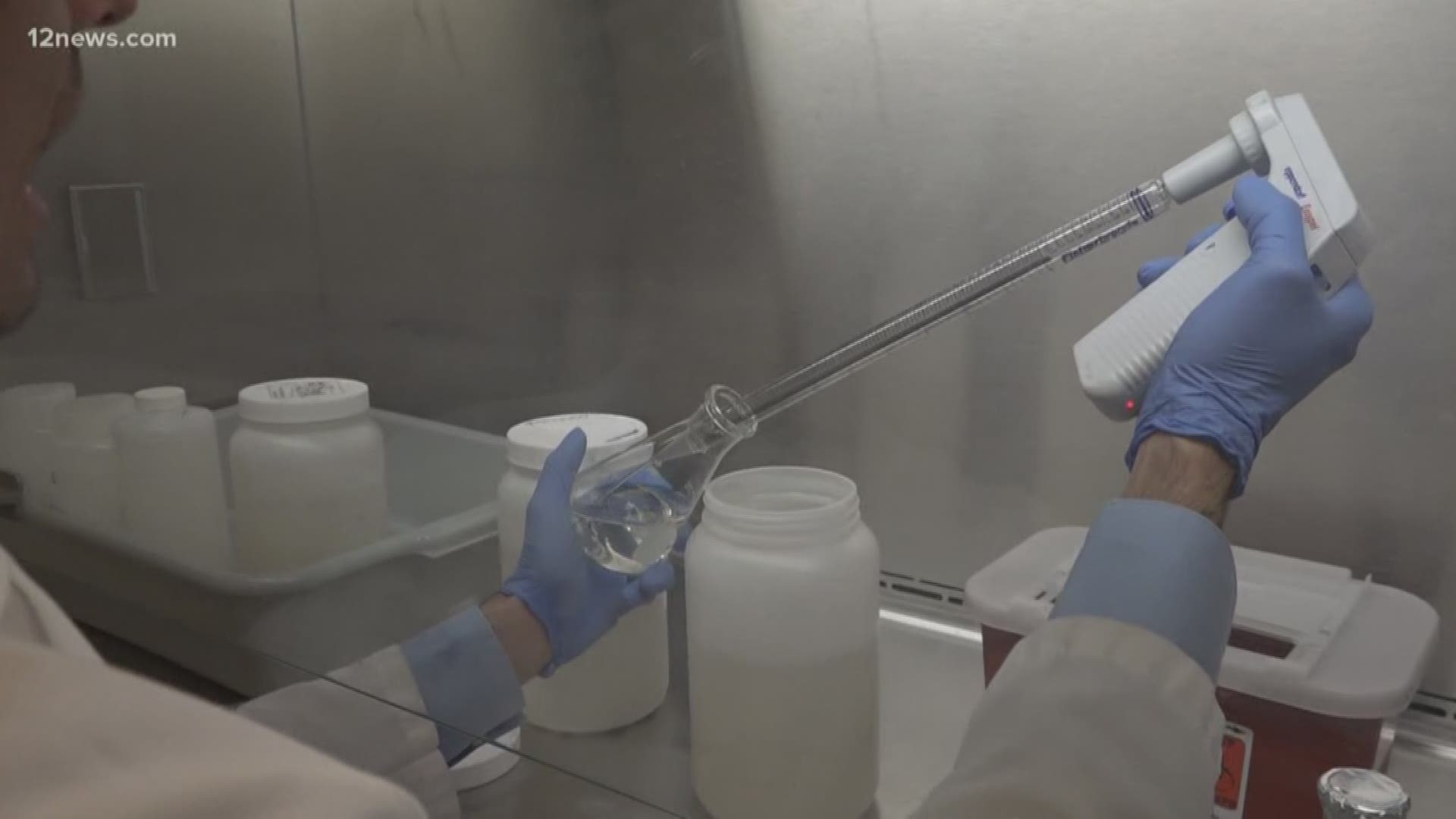TEMPE, Ariz. - The City of Tempe and researchers from Arizona State University’s Biodesign Institute are teaming up to help fight the ongoing opioid crisis like never before.
They’re using a combination of data from emergency calls and wastewater samples to pinpoint possible areas in need of help diminishing drug abuse.
The project comes thanks to a $35,000 grant from the city of Tempe’s innovation fund. ASU is also reportedly matching the grant amount.
Tempe Councilman Joel Navarro has been part of an ongoing task force to help fight the opioid crisis within his own community.
“It’s unbelievable how big this problem is,” said Navarro. He’s seen how bad it is because of his life-long firefighting career.
Navarro is a key player in the new project and says the city will use data from Tempe’s Opioid Abuse Probable EMS Call Dashboard to combine it with information from analyzing wastewater samples so they can try and come up with methods to fight drug abuse.
“With that information, we’re just hoping that we can actually have an effect in reducing the addiction and making our community a healthier community,” said Navarro.
The wastewater samples will be researched by a lab team that includes Ph. D. graduate Adam Gushgari.
“Unfortunately, over the last 10 years, I have lost two of my friends to heroin overdoses, both of those individuals passed away before the age of 25, so with this impacting my life personally, so much, seeing this opportunity was the reason I jumped two feet into the research," he said.
Through a four-step process, Gushgari says he can use a wast water sample to estimate the number of people using a drug within a region, but that’s not all he can do.
“We could estimate the mass of drugs consumed on a specific day, the black market value of drugs consumed in a specific region or day, and we can even use it to estimate the number of overdose deaths we would expect to see based upon the levels of opioids we observed in the waste water," Gushgari said.
According to Gushgari, the research technology has been around for a while, about 15 years, but it’s never been used to help fight abuse, and Tempe is the first city to try it out.
The Biodesign Institute does store the wastewater samples in case a new type of drug emerges later on. Then researchers can go back to older water samples and test for the new type of drug that may have been around before.
The research and study program has already kicked off, making Tempe the first city to really take this type of leadership role in the fight against opioid abuse, but they don’t plan on coming up with drug-abuse fighting programs based on this new effort until later this year.

